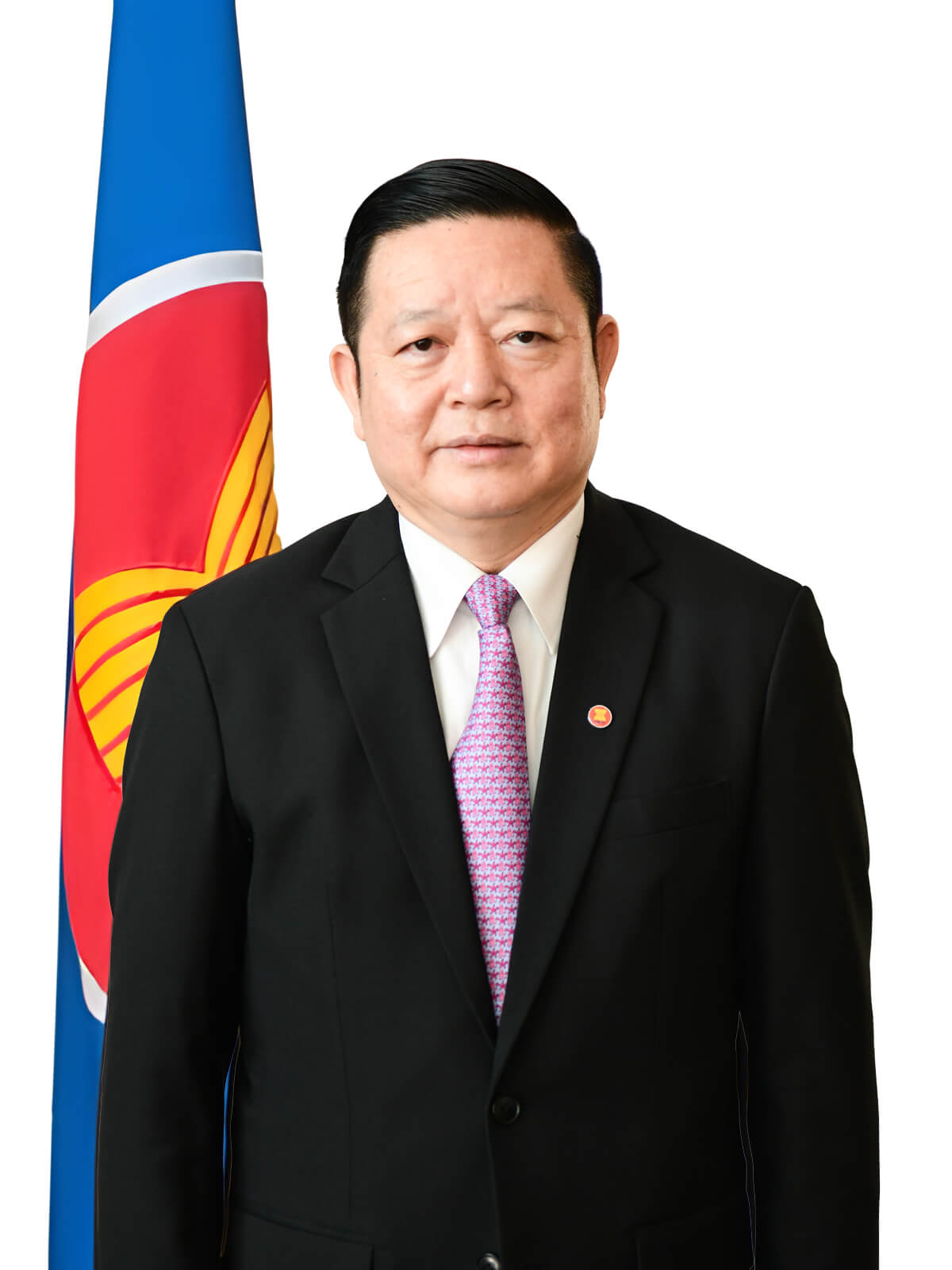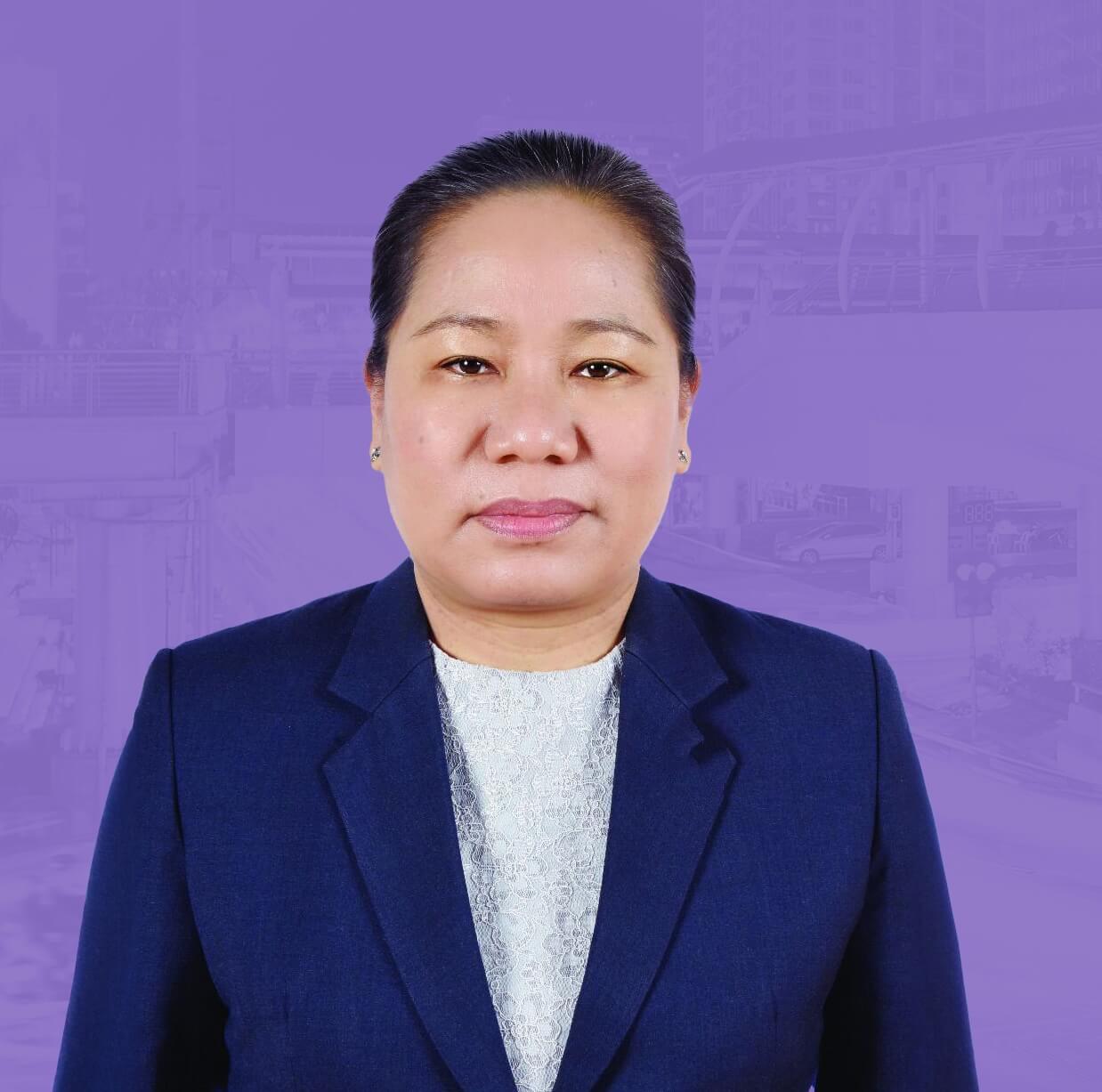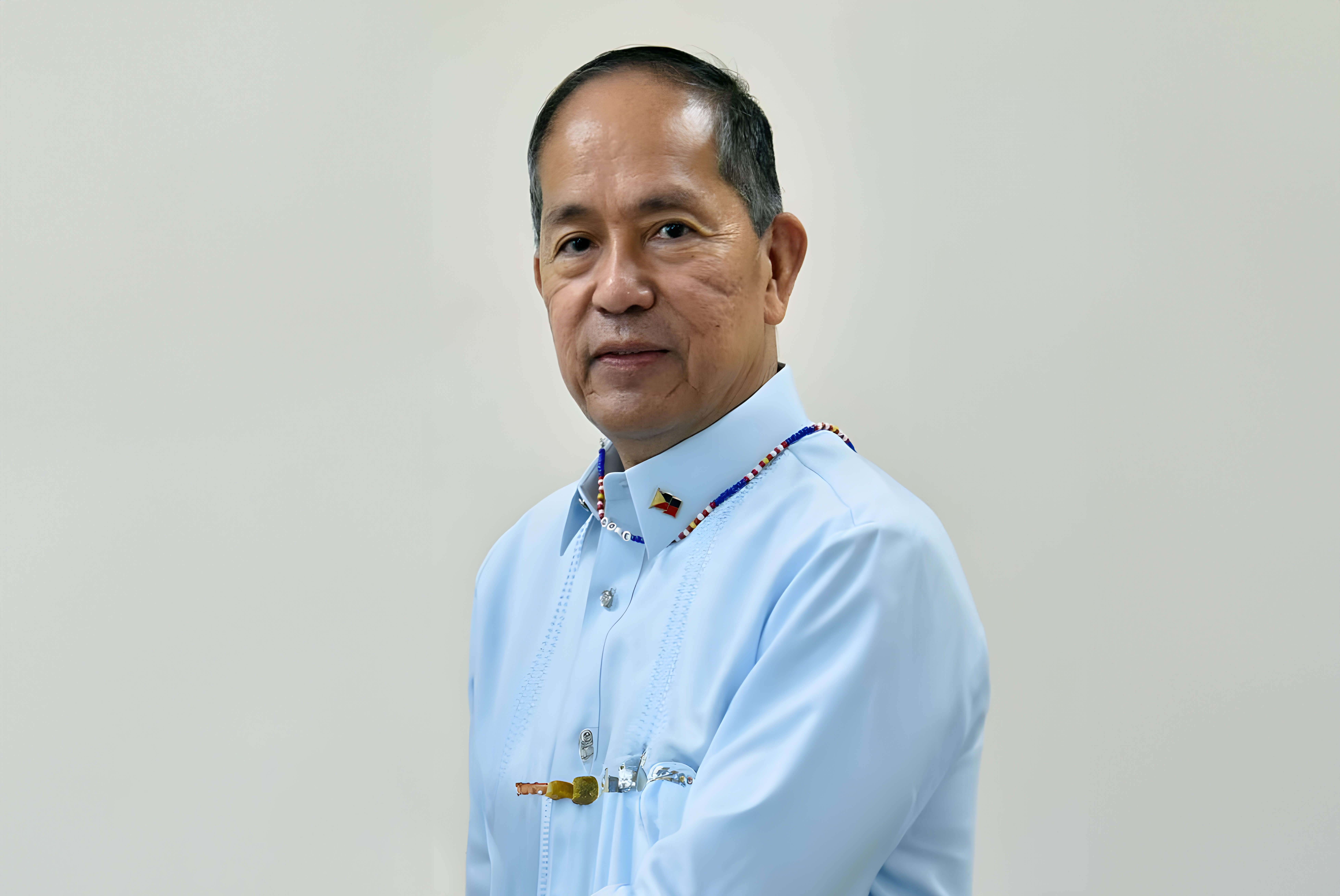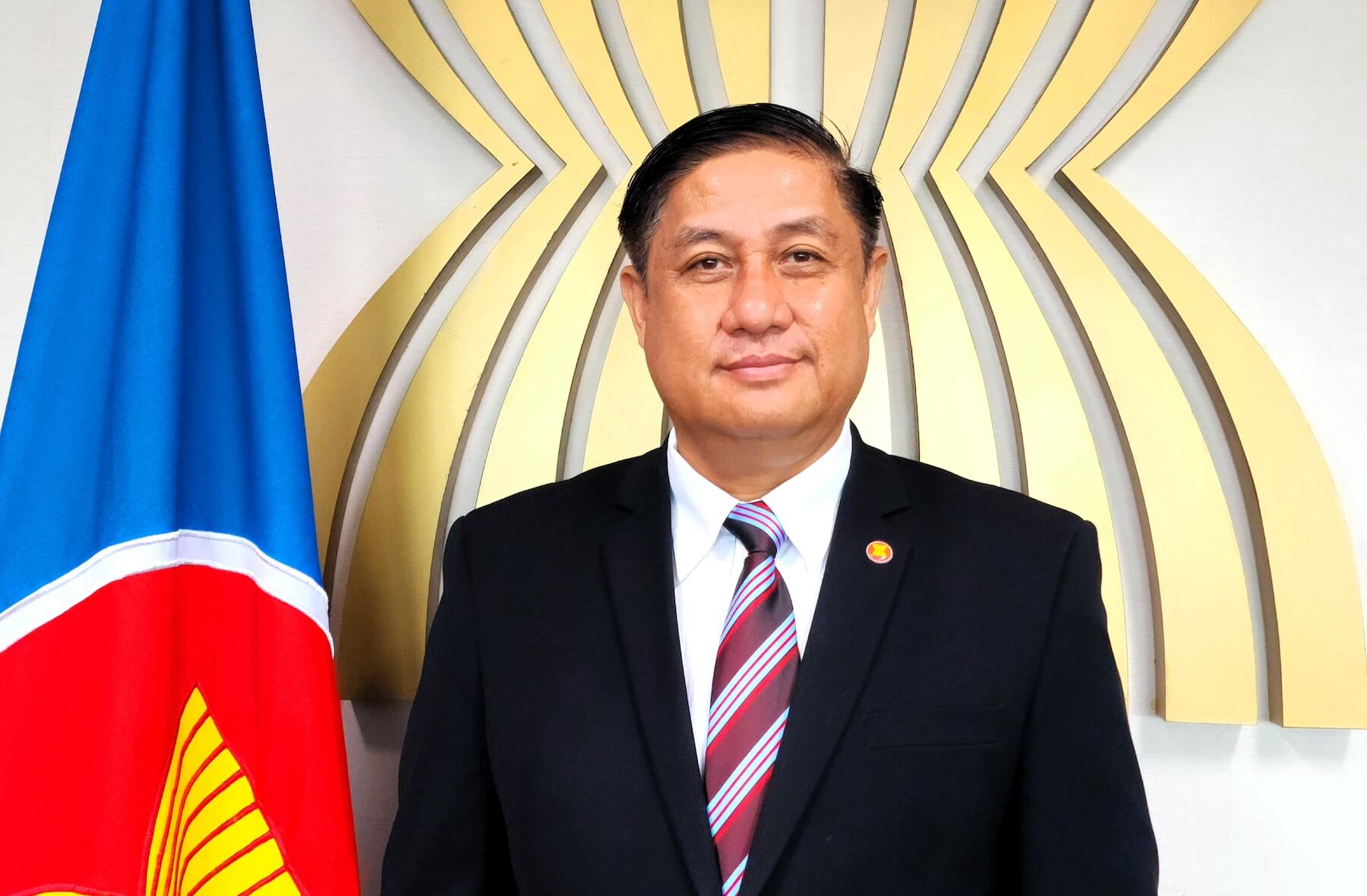


On 11 October 2024, Ekkaphab Phanthavong officially completes his tenure as the Deputy Secretary-General of ASEAN for the ASEAN Socio-Cultural Community. Before assuming his role at the ASEAN Secretariat, he was the Ambassador/Permanent Representative of the Lao PDR to ASEAN from 2018 to 2021. Prior to that, he served numerous appointments at the Lao PDR Ministry of Foreign Affairs, including as Deputy Director-General of the ASEAN Department. In this issue of The ASEAN, Deputy Secretary-General Ekkaphab Phanthavong provides his insights on building resilience in ASEAN—one of the core priorities of Lao PDR’s 2024 ASEAN Chairmanship—and gives his final perspectives from his tenure on the future of the ASEAN Socio-Cultural Community.
The world has become more challenging, and we are facing complex developments across the world and in our region. Geopolitics in our region continues to be shaped by complex relations between major powers. The global economy is also facing higher inflation pressures and interest rates. Disruptions to the global supply chain triggered by the COVID-19 pandemic and other developments have increased energy and food prices.
ASEAN is facing socio-economic challenges such as rapidly ageing societies, urban-rural disparities, the impact of artificial intelligence on education and jobs, workforce relevance, and climate change. Meanwhile, as one of the most disaster-prone regions in the world, extreme climate events are projected to increase in frequency and intensity, putting a strain on national health systems and infrastructure. The COVID-19 pandemic also brought into sharp focus the region’s vulnerability to a spectrum of health risks, the deepening of existing inequalities, hunger and poverty, and the undermining of development gains.
All these external developments and regional challenges will likely reverberate long into the future and test our resolve to build a stronger and more united ASEAN Community. As ASEAN embarks on its ASEAN Community Vision 2045, building resilience will be crucial to achieving its goals.
Climate challenges in the ASEAN region
Over the years, the ASEAN region has experienced an increase in both the severity and frequency of disasters. Since 2012, the AHA Centre has recorded a total of 6,459 disaster events, which killed over 9,000 people, affected 177 million more, ravaged 8 million homes, and cost Member States 7.8 billion US dollars in damage.
More recently, Typhoon Yagi made landfall in five ASEAN Member States, causing significant damage to the Philippines, Viet Nam, the Lao PDR, Myanmar, and Thailand.The disaster has affected 5.5 million people, claimed at least 700 lives, left 146 people missing, and caused an estimated combined damage of 2.53 billion US dollars.
ASEAN’s response to this latest disaster has been quick and efficient—a testament to the well-functioning mechanisms and procedures that ASEAN has built and strengthened over the years following the catastrophic Indian Ocean Tsunami in 2004. The AHA Centre is working closely with the National Disaster Management Organisations (NDMOs) of the affected countries to coordinate relief efforts. Personnel have been deployed to assist in Myanmar and the Lao PDR, and relief supplies have been distributed from warehouses located in the Philippines, Malaysia, and Thailand.
ASEAN’s continuing effort to improve its systems and further enhance the capability of its disaster management and humanitarian sector is showing positive outcomes. While disaster occurrences are increasing, ASEAN’s resilience is likewise increasing.
Enhancing connectivity and resilience
The ASEAN region will continue to face myriad challenges, such as climate change, natural disasters, and traditional and non-traditional security issues. This year, Lao PDR’s ASEAN Chairmanship theme is “ASEAN: Enhancing Connectivity and Resilience.” It reinforces ASEAN’s collective efforts to strengthen the ASEAN community, seize opportunities, and effectively address present and emerging challenges.
In particular, the chairmanship theme’s second component, “Enhancing Resilience,” has five priority areas, namely: (i) Development of the Strategic Plans to Implement the ASEAN Community Vision 2045; (ii) Enhancing ASEAN Centrality; (iii) Promoting Environmental Cooperation: Climate Change Resilience; (iv) Women and Children: Promoting the Role of Women and Children Towards the Transformation of Behaviourism in ASEAN; and (v) Health: Transforming ASEAN Health Development Resilience in a New Context.
Key outcome documents with a focus on building ASEAN resilience for adoption and notation at the 44th and 45th ASEAN Summits include the adoption of the ASEAN Leaders’ Declaration on Enhancing Supply Chain Connectivity, which will enhance efforts to strengthen supply chain efficiency and resilience in the region, bringing together relevant frameworks and initiatives on trade, transport, logistics and supply chain to create an area with seamless, competitive and resilient supply chains.
The ASEAN Declaration on Strengthening the Care Economy and Fostering Resilience Towards Post-2025 ASEAN Community emphasises the building of resilience by continuing efforts to recognise, reduce, and redistribute unpaid care and domestic work through policies and programmes on care-related social protection, care services, care infrastructure, and employment related care policies, among others. As a follow-up action, the Guidance Note on Strengthening the Care Economy and Fostering Resilience towards the post-2025 ASEAN Community is currently being developed by the ASEAN Committee on Women (ACW) through the leadership of the Lao PDR.
From the health sector, the ASEAN Leaders’ Declaration on Strengthening Regional Biosafety and Biosecurity will reaffirm ASEAN’s commitment to enhancing health security and resilience in the region by recognising the growing vulnerability to emerging and re-emerging infectious disease threats. Through the Mitigation of Biological Threats Programme, ASEAN will intensify biosafety and biosecurity initiatives in response to evolving global health challenges and the potential accidental or deliberate release of high-risk pathogens.
Our ASEAN Leaders will note documents that will commemorate the 20th Anniversary of the Indian Ocean Tsunami and build resilience through disaster recovery, risk reduction, risk communication, and capacity building. The Report on Strengthening ASEAN Multi-Hazard End-to-End Early Warning System for Natural Disasters, the Regional Guidance for ASEAN Member States on Strengthening the Role of Social Workers and the Wider Social Service Workforce in the Education Sector, and the Regional Guidance for ASEAN Member States on Strengthening the Role of Social Workers and the Wider Social Service Workforce in Disaster Risk Reduction and Climate Resilience to implement the Roadmap for the Implementation of the Ha Noi Declaration on Strengthening Social Work for Cohesive and Responsive ASEAN Community are also deliverables that have emerged in support of ASEAN Resilience.
Other pertinent outcome documents for notation will contribute to ending AIDS by 2030, develop a shared space in Southeast Asian higher education, advance climate resilience in early childhood settings, develop National Standard Operating Procedures for a coordinated response to Violence against Women and Girls, and strengthen government strategies on mental health and well-being to achieve work-life balance in the public sector. These are all notable outcome documents which further support and complement ASEAN’s efforts towards Community-Building and enhancing resilience.
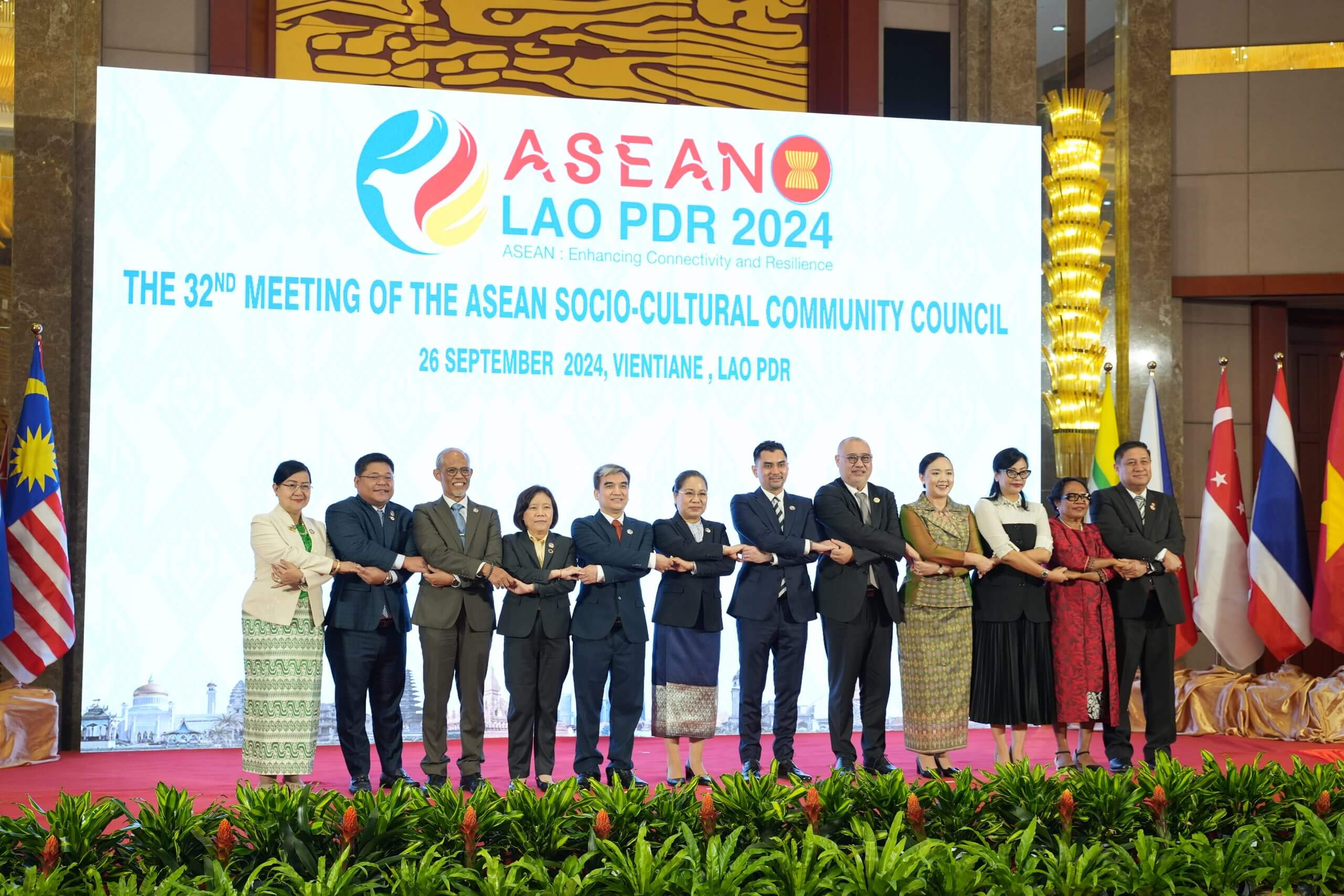
Role of youth and the future of work
The youth are the most important asset for ASEAN and, in fact, the world. They will be our forerunners in building society’s resilience, and efforts must be made to equip them to develop resilience. ASEAN is constantly expanding opportunities for our youth to participate and contribute to policy-making and community development. Our long-standing support is reflected in various platforms, such as the ASEAN Leaders’ Interface with the Youth Representatives of ASEAN, which is held during the ASEAN Leaders’ Summits. We also have the ASEAN Youth Camp and an annual ASEAN Youth in Climate Action and Disaster Resilience Day, which is an indication that youth play an essential role in climate and disaster issues. Indeed, ASEAN has been at the forefront of promoting youth involvement in the region and local climate action.
Sustainable development is an area where their views and contributions can gain traction with policy, and push policymakers to address future-oriented concerns and issues. The future will be very much in good hands. With all the tools and platforms that we have within ASEAN and with our partners, future generations will be able to live in a peaceful and prosperous ASEAN Community.
Training and retraining our labour will also be crucial to strengthening our workforce resilience. This is an important issue. We need to train them with the latest technology and upgrade their skills so that they can remain relevant. We need to invest in skills development and focus on developing business engagement models for upskilling and reskilling workers.
There will also be a need to improve the quality of labour market information and capacity for skills forecasting. In this regard, ASEAN Member States should regularly review their existing educational curriculums and skills upgrading pathways. We will want to strengthen the quality of technical and vocational education and training to meet the current and future skills needs of ASEAN countries.
Strengthening the ASEAN Socio-Cultural Community
Another issue is the potential for philanthropy to support the agenda of the ASCC. Philanthropy is increasingly important in our efforts to achieve the objectives of our ASEAN Community Vision 2045, which include targeted goals such as poverty eradication and providing quality access to education and healthcare. To date, ASEAN has partnered with a number of philanthropic organisations. Our partnership with the Maybank Foundation has given opportunities for young, talented, and deserving ASEAN nationals to pursue their undergraduate programme at a prestigious university within ASEAN. The Temasek Foundation of Singapore and Yayasan Hasanah of Malaysia are currently supporting the ASEAN Prize for outstanding individuals or organisations who empower lives and connect communities across the region. In the past, we have also worked with the Air Asia Foundation and a number of other global and regional organisations. We can better harness the philanthropic sector to contribute to the ASCC agenda, including achieving a safer, stronger, and more resilient community.
Looking back as Deputy Secretary-General of ASEAN for the ASCC
As the Deputy Secretary-General for the ASEAN Socio-Cultural Community since 12 October 2021, I have been overseeing the implementation of the ASCC Blueprint and important ASCC projects that focus on forging a common identity and building a caring and sharing society. I drew on my commitment to the ASEAN Charter to assist the Secretary-General in implementing and supporting programmes and activities to respond to COVID-19 and prepare for our post-pandemic recovery, prepare ASEAN people for the future of work, champion youth development and empowerment, advance gender equality, strengthen education and health cooperation, address climate challenges, respond to disasters and humanitarian assistance, and enhance the capacity and effectiveness of the ASCC to achieve a resilient, dynamic, sustainable, beneficial and inclusive ASEAN socio-cultural future.
Among the initiatives that I had personally overseen and established during my tenure was the update and refresh of the Coordinating Conference on the ASCC, or SOC-COM, to be more discussion-based and dialogue-oriented for cross-pillar coordination. The ASCC Database for Monitoring and Evaluation System or ADME was also set up to track the progress of our Blueprint implementation effectively. I advocated for the establishment of a High-Level Committee for the ASCC, which later became our Ad Hoc Working Group to Develop the Post-2025 ASCC Strategic Plan. I also promoted outreach to the ASCC and oversaw the establishment of the KnowASCC knowledge hub platform.
I am grateful for the support of the ASCC Council, Senior Officials, and Secondment Officers of the ASCC, the Committee of Permanent Representatives, as well as our diplomatic community partners, and stakeholders who have worked relentlessly to promote ASEAN and the ASCC. I also would not have been able to concentrate on my work as the Deputy Secretary-General for the ASCC without the support of my colleagues at the Secretariat. I have to thank all the talented and dedicated staff from all Divisions for their dedicated work. They are calm, stable, and efficient. Without them, our work cannot be done.
ASCC is an important pillar in driving and sustaining our people’s future. It has to be strengthened, emphasised and given more resources, especially as we look towards our ASEAN Community Vision 2045. Some of the challenges I faced three years ago differ from those we are facing now. We have emerged stronger from the COVID-19 pandemic, and we must double down on our efforts to address rising inequalities, climate change, the digital divide and rapid advancement of AI, and disruptions with acute humanitarian assistance implications, to name just a few. We have serious challenges ahead that require strong leadership. New leaders and generations should explore new and innovative ways to navigate frontiers and challenges. I wish my successor all the best when he takes on the position.
When I look back at my time with the ASEAN Secretariat, I will take great satisfaction from how ASEAN and our partners and stakeholders have worked together through some of the most difficult and challenging times. I wish to thank all of you for your unfailing support.




